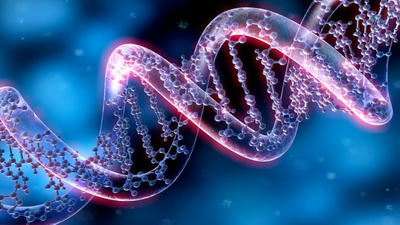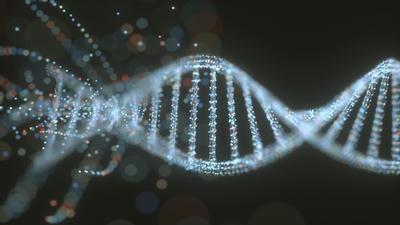
Every living organism on this planet is a unique tapestry woven from the intricate strands of DNA that codes for our traits, behaviors, and predispositions. As we delve into the fascinating world of genetics, we begin to understand how DNA shapes who we are, influencing our physical characteristics, health, and even aspects of our personality.
What Is DNA?
The Building Blocks of Life
Deoxyribonucleic acid, commonly known as DNA, is the molecule that carries the genetic instructions for all living organisms. DNA is structured as a double helix, resembling a twisted ladder, with the rungs formed by pairs of nucleotides. These nucleotides include four types of bases: adenine (A), thymine (T), cytosine (C), and guanine (G). The specific sequences of these bases encode the information necessary for the development, functioning, and reproduction of organisms.
Genes and Genomes
Genes are segments of DNA that serve as instructions for producing proteins, the workhorses of the cell. Each gene contributes to specific traits, such as eye color, height, or susceptibility to certain diseases. An organism's entire set of genetic material, including all its genes, is referred to as its genome.
The Human Genome Project, completed in 2003, was a landmark scientific endeavor that mapped the entire human genome, identifying approximately 20,000 to 25,000 protein-coding genes. This monumental achievement paved the way for advancing our understanding of genetics and its implications for human health and disease.
How Genetics Influences Our Traits
1. Physical Traits
One of the most observable ways genetics shapes our identity is through physical traits, also known as phenotypes. Various characteristics, such as hair color, skin tone, height, and facial features, are influenced by the interplay of multiple genes.
-
Polygenic Traits: Many physical traits are governed by multiple genes, known as polygenic inheritance. For instance, height is influenced by dozens of genes, as well as environmental factors. This complexity can make predicting phenotypes based on genetics challenging.
-
Single Gene Traits: In contrast, some characteristics are determined by a single gene. For example, the inheritance of a gene responsible for a particular color of peas, as famously studied by Gregor Mendel, follows straightforward patterns of dominance and recessiveness.
2. Health and Disease
Genetics plays a crucial role in our susceptibility to various health conditions. Understanding the genetic basis of diseases can provide insights into prevention, diagnosis, and treatment options.
-
Inherited Disorders: Some conditions, such as cystic fibrosis, sickle cell anemia, and Huntington's disease, are directly caused by mutations in specific genes. These genetic disorders can be passed down through generations, highlighting the importance of genetic screening and counseling.
-
Complex Traits: Many health conditions, such as heart disease, diabetes, and cancer, are the result of complex interactions between multiple genes and environmental factors. Identifying genetic predispositions can help individuals take proactive measures to reduce their risk.
3. Behavioral Traits
Emerging research suggests that genetics may also shape aspects of our behavior and personality. While the environment plays a crucial role in development, certain genetic factors may influence tendencies towards specific traits.
-
Nature vs. Nurture: The age-old debate surrounding nature versus nurture examines the extent to which genes vs. environment shape individual behavior. Studies of twins, especially identical twins raised apart, provide fascinating insights into this complex interplay.
-
Genetic Influences on Personality: Some studies suggest that traits such as extraversion, neuroticism, and openness may have genetic components. However, it is essential to recognize that genetics is just one piece of a much larger puzzle that includes life experiences and social environments.
The Role of Epigenetics
As we explore how genetics shapes who we are, we cannot overlook the field of epigenetics. Epigenetics studies how environmental factors can influence gene expression without altering the underlying DNA sequence.
Mechanisms of Epigenetic Regulation
Epigenetic modifications can turn genes on or off, affecting how they are expressed. These modifications can occur due to various factors, such as:
-
Environmental Influences: Diet, stress, exposure to toxins, and lifestyle choices can lead to epigenetic changes that may impact health and behavior.
-
Developmental Stages: Epigenetic changes can occur during crucial developmental periods, shaping the expression of genes that regulate growth, metabolism, and cellular differentiation.
Implications for Health
Understanding epigenetics has significant implications for personalized medicine and public health. By recognizing how lifestyle factors influence gene expression, we can develop targeted interventions to promote health and prevent disease.

The Importance of Genetic Testing
As our understanding of genetics has evolved, so too have the tools available for examining our DNA. Genetic testing has become an essential tool for individuals seeking insights into their genetic makeup, health risks, and ancestry.
1. Health Risk Assessment
Genetic testing can reveal predispositions to certain medical conditions, allowing individuals to make informed decisions about their health. For example, testing can identify mutations in genes like BRCA1 and BRCA2, which are associated with an increased risk of breast and ovarian cancer. Armed with this knowledge, individuals can take preventive measures, such as increased surveillance or surgical options.
2. Ancestry and Genealogical Research
Many people are fascinated by their genetic heritage, prompting the popularity of direct-to-consumer genetic testing services. These tests can provide insights into ancestry, geographic origins, and potential familial connections. While such tests can be entertaining and informative, it is crucial to approach the results with an understanding of their limitations.
3. Ethical Considerations
As genetic testing becomes more commonplace, ethical considerations arise. Issues related to privacy, data security, and the potential for genetic discrimination require careful thought and regulation. Ensuring that individuals understand the implications of genetic testing is vital for informed decision-making.
The Science of Genetic Engineering
Advancements in genetic engineering technologies, such as CRISPR-Cas9, have opened new avenues for modifying DNA. These powerful tools have transformative potential but also raise profound ethical questions.
Genome Editing
CRISPR-Cas9 allows scientists to edit specific genes, potentially correcting genetic mutations responsible for inherited disorders. This technology holds promise for treating diseases such as muscular dystrophy and certain types of cancer. However, the ability to alter the human genome raises concerns about unintended consequences, ethical boundaries, and the potential for designer babies.
Agricultural Applications
Genetic engineering is not limited to human health; it extends to agriculture as well. Scientists use genetic modification to enhance crop resilience, improve yields, and develop plants that can withstand climate challenges. While these innovations can help address food security, they also spark debates about safety, environmental impact, and corporate control of food sources.
The Role of Science Popularization
1. Bridging the Knowledge Gap
The complex and often misunderstood field of genetics requires effective communication to bridge the knowledge gap. Science popularization plays a vital role in making genetic concepts accessible to the general public, empowering individuals to engage with the subject.
2. Encouraging Informed Discussions
As advancements in genetics continue to reshape our understanding of ourselves and the world around us, fostering informed discussions is crucial. By presenting scientific findings in clear and relatable terms, we can help people navigate the ethical, social, and medical implications of genetic research.
3. Engaging Future Generations
Educating future generations about genetics and its significance is essential for inspiring the next wave of scientists, healthcare professionals, and informed citizens. Engaging hands-on activities, outreach programs, and innovative media can ignite curiosity and interest in the field of genetics from an early age.
4. Addressing Misconceptions
Genetics is often surrounded by misconceptions and myths, leading to fear and misunderstanding. Science popularization can help dispel these myths by providing accurate information and fostering critical thinking skills. Encouraging scientific literacy can empower individuals to make informed choices in their health and lives.
Conclusion
Genetics is a captivating field that deepens our understanding of who we are as individuals and as a species. From the fundamental building blocks of DNA to the complex interplay of genes, environment, and behavior, the science of genetics offers profound insights into human identity and health.
As we navigate the complexities of genetic research, science popularization remains vital. By making genetic information accessible and engaging, we can empower individuals to understand and appreciate the implications of their genetic makeup. In doing so, we unlock the potential for informed decision-making, enhanced personal health, and an appreciation for the remarkable tapestry of life that genetics reveals.
Through collaborative efforts in research, education, and public engagement, we can embrace the wonders of genetics, enriching our lives and shaping a better understanding of our collective future.



